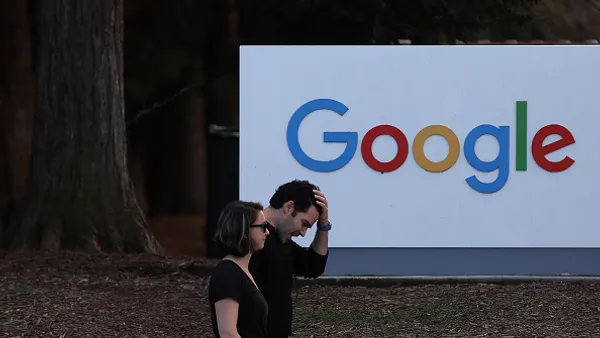Dive Brief:
- Demand side platform (DSP) The Trade Desk partnered with cyber security firm White Ops in a move designed to stop ad fraud before it happens, the company said in a press release.
- As part of the deal, White Ops will scan every impression on inventory before advertisers bid on the digital ad spots, which means marketers won’t spend a dime on any inventory that the cyber security firm finds fraudulent.
- Adding fraud detection on the DSP side of the equation wasn’t easy, Jeff Green, CEO at The Trade Desk, told Ad Age. Fraud happens on the supply side, at times in cahoots with the inventory supplier, so vetting that inventory from the supply side is a notable change, he explained.
Dive Insight:
The Trade Desk news is noteworthy for tackling one particularly thorny digital marketing issue — ad fraud — head on and in a more proactive way than others like Google, which recently moved to refund marketers after the fact when they are hit by ad fraud. A report from last December from White Ops found that a single Russian group’s bot farm called Methbot was generating $3-5 million daily via 600,000 counterfeit IP addresses getting up to 300 million impressions on video ads that no person ever sees, pointing to how big the problem is.
The digital advertising marketplace has been a murky ecosystem for years with a number of ad tech firms standing between marketers and the publishers who serve the ads. The issue reached a new level of urgency this year when CPG giant P&G took a stand and demanded a cleaner inventory supply chain for digital ads and more transparency throughout the process. The company's Chief Brand Officer Marc Pritchard also threatened to take its business elsewhere if these concerns are not addressed.
The Trade Desk claims to be the first advertising platform to block non-human impressions before an ad is served. The goal is to apply White Ops' Human Verification technology across the entire platform instead of a sample of impressions, which is what often happens on ad platforms. White Ops and The Trade Desk will co-locate servers and data centers to scan every biddable ad impression in real-time.
“Not only will this partnership be beneficial for advertisers and diminish buyer concerns surrounding fraudulent impressions, but it will serve as another step towards a fully trusted supply chain," said Will Doherty, VP of Business Development at Index Exchange, in the press release.
Digital ad exchanges and platforms, including the two de facto leaders Google and Facebook, have long been very agnostic about that process. A brand safety issue this early spring made some marketers actually test DSP programmatic ad buying and found it lacking. Chase, for one, reduced its website ad exposure from 400,000 to 5,000 and found there was little change in the cost-per-impression for those ads, a result that indicated programmatic buying wasn’t driving any real results.













